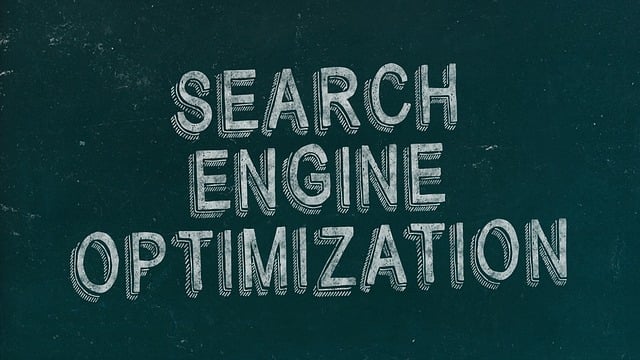In today's digital age, Artificial Intelligence (AI) is a game-changer for hospitality businesses. AI feedback analysis for menu changes helps restaurants make data-driven decisions by processing customer interactions and sales data through machine learning algorithms. This enables them to predict preferences, identify trends, optimize menus, and improve profitability while catering to evolving market demands. By leveraging AI in menu planning, restaurateurs can drive growth, enhance customer satisfaction, and gain a competitive edge.
In today’s competitive landscape, Artificial Intelligence (AI) is transforming business strategies, especially in sectors like hospitality. This article explores the pivotal role of AI consulting in driving growth and enhancing customer satisfaction. We delve into three key areas: understanding AI’s potential in strategic decision-making, mastering AI feedback analysis for menu optimization, and implementing AI consulting to foster sustainable business growth. By leveraging these insights, restaurants can revolutionize their operations and stay ahead in the market.
- Understanding AI's Role in Business Strategy: Unlocking Insights for Menu Optimization
- The Power of AI Feedback Analysis: A Step-by-Step Guide for Restaurant Decision-Making
- Implementing Strategic AI Consulting: Enhancing Business Growth and Customer Satisfaction
Understanding AI's Role in Business Strategy: Unlocking Insights for Menu Optimization

In today’s digital era, Artificial Intelligence (AI) is transforming business strategies across industries, and strategic AI consulting is a game-changer for many organizations. Understanding AI’s role in shaping business decisions, especially in dynamic sectors like hospitality, is crucial. When it comes to menu optimization, AI offers powerful tools for analysis and feedback. By leveraging machine learning algorithms, businesses can gain valuable insights from customer interactions and sales data. This enables them to make informed choices about menu items, pricing strategies, and promotions, ultimately enhancing overall dining experiences.
AI feedback analysis for menu changes allows restaurants and cafes to predict customer preferences, identify trending dishes, and understand the impact of seasonal variations. For instance, AI can process historical sales data to determine which menu options have higher demand during specific periods or events, helping businesses tailor their offerings accordingly. This strategic approach ensures that menu optimization is not just a guess but a data-driven decision, increasing efficiency and profitability while keeping up with market demands.
The Power of AI Feedback Analysis: A Step-by-Step Guide for Restaurant Decision-Making

In today’s digital era, restaurants can harness the power of AI feedback analysis to make strategic decisions about menu changes. By collecting and analyzing customer feedback from various sources—like online reviews, social media, and point-of-sale data—restaurateurs gain valuable insights into consumer preferences and behaviors. This step-by-step guide allows for a structured approach:
1. Data Collection: Gather all relevant feedback channels to create a comprehensive dataset.
2. Sentiment Analysis: Utilize AI tools to analyze sentiment, identifying positive, negative, or neutral opinions about menu items.
3. Trend Identification: Discover emerging trends and patterns in customer feedback, highlighting popular dishes, common complaints, and desired additions.
4. Prioritize Changes: Based on sentiment analysis and trend identification, prioritize menu adjustments that will have the most positive impact.
5. Iterate and Optimize: Continuously monitor post-change feedback to refine the menu further, ensuring it evolves with customer tastes and expectations.
Implementing Strategic AI Consulting: Enhancing Business Growth and Customer Satisfaction

Implementing strategic AI consulting can significantly enhance business growth and customer satisfaction. By leveraging advanced algorithms, businesses can gain valuable insights from data analysis, enabling them to make informed decisions that drive innovation and efficiency. One practical application is in menu optimization through AI feedback analysis for menu changes. This approach allows restaurants and food service establishments to adapt their offerings based on real-time consumer preferences, thus increasing customer satisfaction and loyalty.
AI consulting aids in identifying patterns and trends within customer feedback data, providing actionable recommendations that streamline operations. For instance, analyzing customer reviews and order history can help businesses predict popular items, identify underperforming menu options, and make data-driven adjustments to their menus. This strategic approach not only boosts revenue but also ensures that business strategies align with customer expectations, fostering a competitive edge in the market.
In conclusion, integrating AI into business strategy, particularly through advanced AI feedback analysis for menu changes, has proven to be a powerful tool for restaurants. By leveraging these technologies, businesses can enhance customer satisfaction and drive growth. Strategic AI consulting ensures that decisions are data-driven and tailored to specific needs, ultimately leading to a competitive edge in the market. Implementing these practices is not just about adopting new tools; it’s about embracing a future where technology amplifies human expertise, fostering innovation and success.
